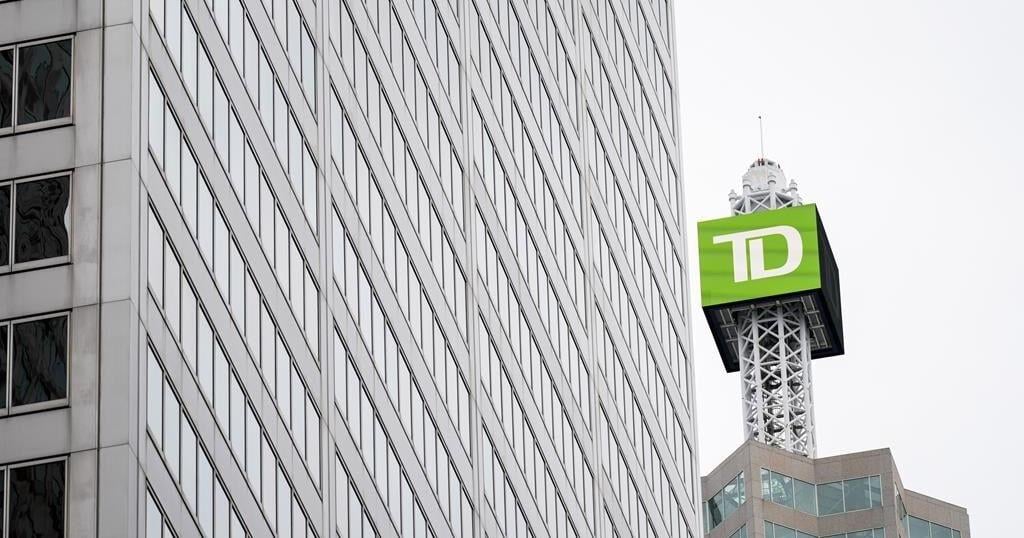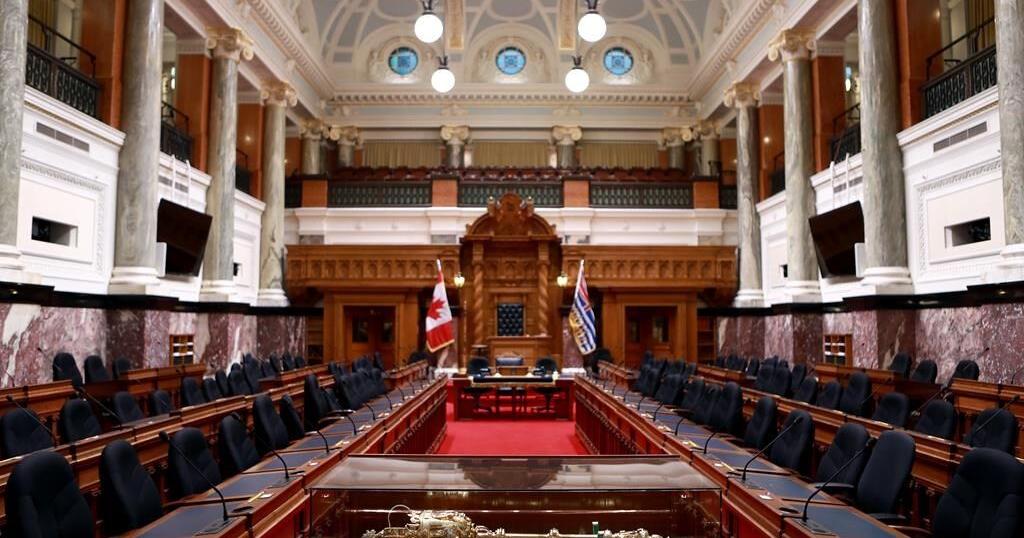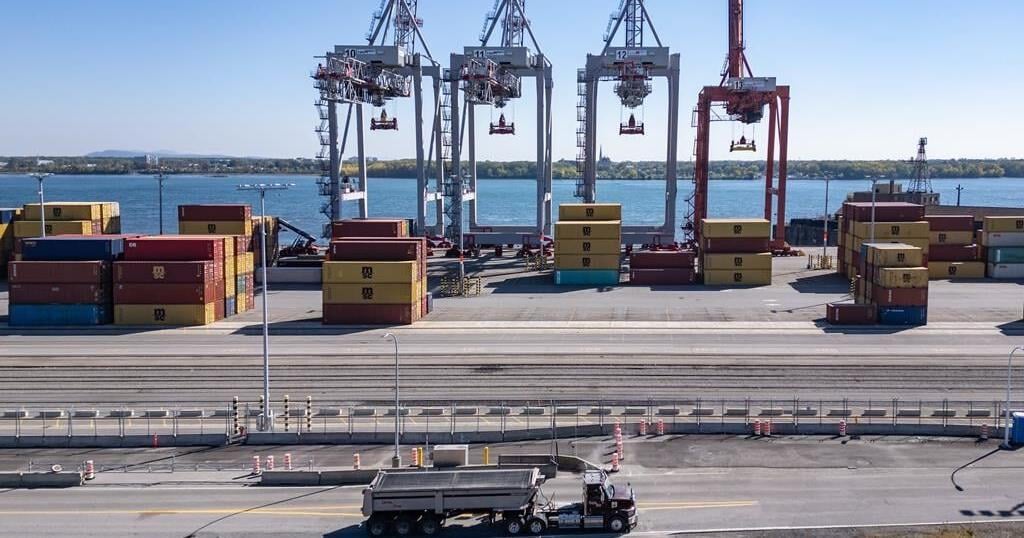TORONTO – TD Bank Group swung to a rare loss in its latest quarter as it took a US$2.6-billion charge related to ongoing U.S. investigations into its anti-money laundering program.
The charge led to a reported quarterly loss of $181 million, the first for the bank since 2003, but it also provided clarity on the expected total cost of the investigations after some speculation it could go even higher.
“The US$2.6-billion provision we just announced, combined with the US$450-million provision announced last quarter, represents our current estimate of the total fines to be paid related to these matters,” chief executive Bharat Masrani told financial analysts on a conference call Thursday to discuss the company’s latest results.
TD also added it expects a global resolution of the issues will be finalized by the end of the calendar year.
“While we are not through the tunnel yet, we can see the light at the end of this journey,” Masrani said.
The anti-money laundering investigation has been a major overhang for TD for some time. The investigation helped scuttle its US$13.4-billion acquisition of U.S. bank First Horizon Corp. in May last year, while the bank disclosed last August it expected U.S. regulators to impose penalties because of deficiencies in the program.
Earlier this year, the bank admitted serious deficiencies in its program after media reports that criminals had laundered at least US$653 million in proceeds from illicit drugs through the bank.
“As I’ve said before, the failures were serious,” Masrani said Thursday. “We own it, we know what the issues are and we are fixing them.”
The bank said the expected resolution will include both the monetary penalties it outlined, along with non-monetary ones. Analysts have been concerned those penalties could include restrictions on growing its balance sheet, but Masrani declined to provide any details on what non-monetary penalties could entail.
“You know, there might be compliance requirements, there can be various other requirements, hard to speculate. We are in the middle of this, negotiations, investigations, so we just want to make sure that we give you a fulsome disclosure when it’s appropriate.”
Along with announcing the provision, the bank said it had sold 40.5 million shares of the Charles Schwab Corp., worth about US$2.6 billion.
Analysts questioned the need for the sale, but Masrani said it was about keeping capital levels high.
“It’s prudent to have capital. There is still a lot of volatility and economic conditions are not as predictable as one would like.”
The need for capital came as the loss in its latest quarter stood in sharp contrast to a profit of $2.88 billion a year ago. The loss amounted to 14 cents per diluted share for the quarter ended July 31 compared with a profit of $1.53 per diluted share a year ago.
Revenue in the quarter totalled $14.18 billion, up from $12.91 billion a year ago.
On the credit question that will be a key focus for other banks, TD reported provisions for credit losses amounted to $1.07 billion, up from $766 million in the same quarter last year, though essentially flat from the previous quarter.
On an adjusted basis, TD said it earned $2.05 per diluted share in its latest quarter compared with an adjusted profit of $1.95 per diluted share in the same quarter last year.
The adjusted profit fell a little short of the $2.07 analysts on average had expected, according to LSEG Data & Analytics.
One of the big reasons for the miss was a big pullback in earnings from TD’s insurance unit because of extreme weather events.
Insurance earnings of $15 million were down significantly from the $145 million last quarter after it saw $186 million in claims during the quarter from the Toronto area flooding and the Alberta wildfires. The bank has also seen a rise in claims from hailstorms in Calgary and flooding in Montreal this month.
“We’ve seen an increase in the frequency of weather events,” said Masrani.
However, analysts were more focused on the anti-money laundering issue than the slight miss, noting the clarity is welcome.
“It doesn’t answer all the outstanding questions, but it does provide some important clarity on the ultimate timeline for a full resolution of the bank’s U.S. AML issues, as well as a clearer picture of the total monetary penalty,” said Scotiabank analyst Meny Grauman in a note.
While the approximately US$3 billion in total penalties is at the upper end of some forecasts, Grauman noted that some were expecting as high as US$4 billion.
He said the real issue in his view are the potential non-monetary penalties and the lack of details on them, but he’s not as worried as the market.
“We continue to believe that the market is pricing in a worst-case scenario that does not really have a precedent.”
National Bank analyst Gabriel Dechaine said the bank’s long-term outlook is challenged by the potential restrictions on U.S. asset growth, along with a multi-year increase to compliance costs.
He said the clarity on the total monetary penalties removes an overhang on the bank, while also clearing the way for a potential CEO succession.
“CEO succession at TD would have been topical if only because current chief Bharat Masrani has been at the helm for a decade. Succession questions have become even more intense because of the bank’s U.S. regulatory issues.”
Investors will have to wait longer to find out the full fallout from the affair, but Masrani said he’s keen to lay out the full picture.
“I look forward to providing additional clarity as soon as I can.”
This report by The Canadian Press was first published Aug. 22, 2024.
Companies in this story: (TSX:TD)
























